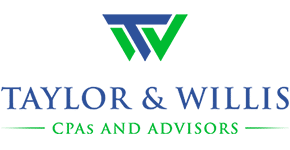No matter how small your business is, having a tax and financial advisor can be beneficial. If you want to be serious about your business, we recommend you hire a CPA firm, not just an accountant. An accountant is a general term for anyone in the tax or finance profession who follows specific rules and regulations. Think of CPAs as super accountants because they are accountants who have passed a notoriously difficult licensing examination in a state. So, technically all CPAs are accountants, but not all accountants are CPAs.
An accountant may fill some of your business’s accounting needs, but there are specific circumstances in which using the services of a CPA can have its benefits. A CPA is licensed by a state and is current with state and federal tax laws. They must comply with continuing education requirements in order to maintain their licenses. CPAs can also do detailed financial analysis and offer advice on tax and financial matters. But probably the biggest reason to use a CPA for your business taxes is that a CPA is eligible to represent you before the IRS in an audit, while an accountant is not.
So how can you be sure you are hiring the right CPA for your business? To make sure your accounting is in the right hands, consider these six tips for hiring a CPA:
1. Find a CPA or firm that understands your personal needs.
You need to be able to openly communicate with your CPA. If you’re hiring an external CPA firm, it has to understand what you do before you decide to work with them, even if the firm is just doing your taxes. There are too many things that can go wrong if your CPA doesn’t truly understand your business.
It’s also helpful to make sure your CPA firm can take you through their process and set clear expectations. Consider finding a practice that’s eager to work with you and appreciates your business. Keep an eye out for warning signs, such as slow response time.

2. Find a CPA who also does financial analysis.
A CPA or firm can review your business’s financial health. Ideally, you want to get key health indicators. Examples of this are gross profit margin, aging accounts receivable, net profit, etc. on a day-to-day basis. This allows you to make the most informed business decisions with the relevant information you receive from your CPA.
3. Tax Deductions
One of the most important aspects of working with a CPA firm is to make sure your taxes are done correctly. The IRS is always on the lookout for mistakes and can penalize you if they find fault in your tax returns.
A good CPA firm will help you file your taxes in a way that minimizes your chances of being audited, while maximizing your tax deductions.
4. Routine Review of Your Financial Reports
Most small business owners don’t do this on a regular basis or at all. This leads to big problems down the road if the accountant makes mistakes or doesn’t look as closely as they should. Annual financial reports for a small business help identify areas that might need more attention from the accountant or you. They also help keep you on track with your financial goals.
5. Loan Assistance
Taking out a loan is frequently necessary when starting a business. Keep in mind that having an CPA firm who understands your financial position might assist you in explaining the purpose of the loan and exploring other financing possibilities. CPAs can assist company owners with the next phase of obtaining a loan after they’ve been accepted. They typically assist clients in obtaining the information and data they need for a loan, such as quantifying their current financial condition and credit demand. A CPA Firm may work with customers to create compelling loan applications that increase the prospects of a bank accepting the request by utilizing this data.

6. Cash Flow
One of the biggest benefits you should expect from a CPA firm is increased cash flow. For example, if your business has a slow quarter and you don’t have a line of credit, this could pose a serious problem. A CPA firm should always give you with cost estimates for projects or a cost limit so that you are not blindsided by a large invoice. As a client, you should anticipate to be informed and advised about how money may flow through your business, how you might improve it, and in the end, how your organization will benefit.
As a business owner you’ve got plenty of other jobs to do, including overseeing sales and marketing, dealing with customers, and making plans for how to grow your business. You might be thinking that handling your accounting and finances yourself will save your business money, when in fact it could do just the opposite. Do yourself a favor and consider hiring some help. As a business owner, you shouldn’t be spending your time figuring out accounting software and data entry when you could be using that time to focus on the bigger picture: building your business. An experienced CPA understands the process and can execute it error-free, which is crucial because errors mean negative monetary impact on your business. If you have no experience in accounting, it may be better to leave it to the professionals.











